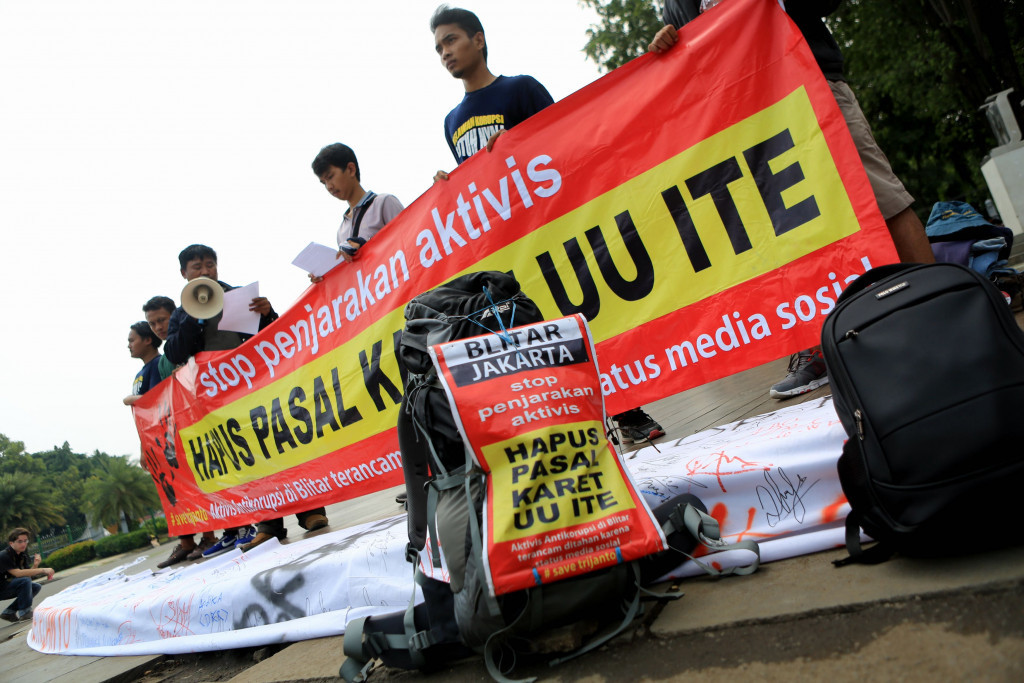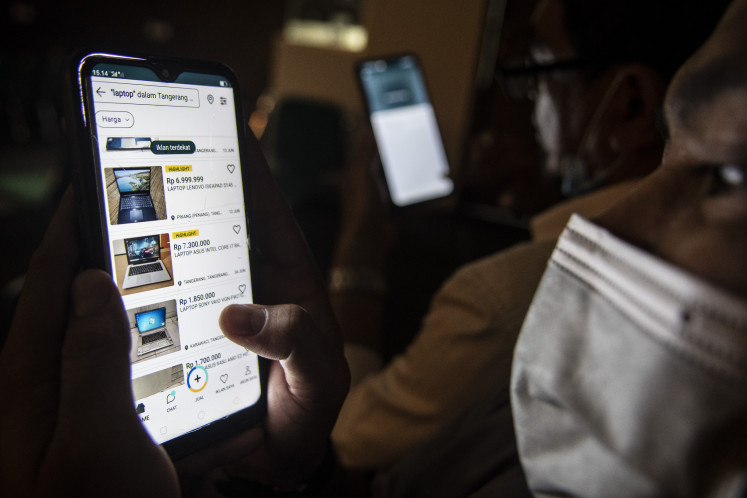Popular Reads
Top Results
Can't find what you're looking for?
View all search resultsPopular Reads
Top Results
Can't find what you're looking for?
View all search resultsNo to illiberal cyberlaw
For more than a decade, the ITE Law has been a major threat to our civil liberties; it is the digital incarnation of the colonial defamation law.
Change text size
Gift Premium Articles
to Anyone
W
ith the policymakers having wrapped up their deliberations on the second revision to the Electronic Information and Transaction (ITE) Law without meaningful public consultation, we will likely continue to live under an illiberal cyberlaw.
It is concerning that members of the executive and legislative bodies have chosen to keep their discussions of the important bill from public scrutiny. As we become more reliant on digital technology to do our daily tasks, which has turned all of us into netizens, it is only fair that we have a say in the making of the rule of law in cyberspace.
It is feared that the bill maintains certain provisions that are inimical to online freedom, further intensifying the illiberal nature of digital governance. This is the case even when the policymakers claimed that the revision was being made to respond to public demands that the current law be made less draconian.
For more than a decade, the ITE Law has been a major threat to our civil liberties. It is basically the digital incarnation of the colonial defamation law, known the haatzai artikelen, a rubber law that served the interests of the elite at the expense of the population, particularly those deemed to challenge their political hegemony. Its efficacy as a tool of repression is comparable to the lèse-majesté law in Thailand, one of the countries with the lowest score of online freedom in the region.
As we write this editorial, two human rights activists are facing years of prison time for expressing their critical opinion of a senior cabinet minister on YouTube. Their case is a textbook example of how the current cyberlaw is nothing but a political weapon to silence critical opinions. We must revoke these kinds of provisions from the law.
The policymakers may have decided to revoke the provisions on online defamation from the law, as they will soon be regulated under the newly revised Criminal Code. However, activists are concerned that the bill would still contain some provisions that could be used to restrict freedom of expression in the digital sphere.
The problem is that the deliberations were mostly conducted behind closed doors. Neither lawmakers nor government officials, as we have reported earlier, disclosed any details about which provisions were changed in the amendment.
All we know is that they changed 14 articles in the law, including the ones used to prosecute online critics, and added five new ones. However, this does not mean that the law would abolish any provisions related to online censorship, given that our cyberspace is still littered with defamatory, inflammatory and pornographic content.
Several earlier drafts of the bill contained stipulations expanding the government’s authority in moderating online content deemed unlawful or injurious to public order and terminating internet access to it. The government will also be granted the power to instruct electronic service providers to conduct content moderation for information considered “threatening the people’s safety or public health”.
Furthermore, another version of the draft amendment mandates an expansion of the ministry’s civil investigators’ (PPNS) authority to freeze social media accounts, as well as bank and electronic money accounts of sites that violate the law. It remains unclear if there are clear provisions within the bill that could serve as safeguards against abuse.
The House of Representatives is expected to approve the revisions in the next plenary session, giving little window for civil society groups to bring their case against the potentially illiberal provisions in the bill. This is a law-making tactic that we have repeatedly condemned as undemocratic — the policymakers enacting legislation concerning the public without consulting the public. They claimed that they wanted to have “a clearer mind in deliberating the revision”, and would likely repeat the same old suggestion that the public could still challenge the law at the Constitutional Court.
It appears that radical pragmatism is so pervasive among public officials that we wonder if we still have a legal avenue to hold our policymakers accountable, even on matters that would directly affect our daily lives. This problem cannot go on.
The House must postpone the passing of the new cyberlaw and ensure that the public is adequately consulted concerning its critical substance. We cannot have another illiberal cyberlaw, especially not when our democracy is gradually withering.











